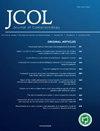直肠癌永久性结肠造口术的生活质量和经济影响
Q4 Medicine
引用次数: 0
摘要
导言:重返工作岗位是癌症康复的一个重要里程碑。直肠癌治疗可能需要进行永久性结肠造口术,这会严重影响患者的生活质量。我们旨在评估永久性结肠造口术对直肠癌患者健康相关生活质量和重返工作岗位的影响。方法 这是一项回顾性队列研究,研究对象是 23 名接受直肠癌根治手术并需要永久性结肠造口术的就业患者。向符合条件的患者发放了人口统计学和健康相关生活质量问卷(结肠造口影响评分(CIS)、EORTC 生活质量问卷(QLQ)-C30 和 EORTC QLQ-CR29)。结果 患者(10 名女性,13 名男性,平均年龄 61.8 岁)平均术后 5.0 ± 3.5 年。接受调查时,73.9%的患者已重返工作岗位(21.7%的患者更换了工作类型),17.4%的患者从未重返工作岗位。在重返工作岗位的患者中,11.8% 在手术后 1 个月内重返工作岗位,23.5% 在 12 个月后仍未重返工作岗位。对重返同一工作岗位(14.6 ± 0.93)、更换工作岗位(13.0 ± 0.74)和未重返工作岗位(14.3 ± 2.3)的患者的 CIS 进行比较后发现,他们之间没有显著差异(p = 0.36)。CIS 与重返工作岗位的工作天数或重返工作岗位的时间没有相关性(p > 0.05)。结论 采用永久性结肠造口术治疗直肠癌后重返工作岗位是一项挑战,有 17.4% 的人从未重返工作岗位。在重返工作岗位的患者中,23.5%需要12个月以上的时间。在我们的研究中,这与 CIS 无关。本文章由计算机程序翻译,如有差异,请以英文原文为准。
Quality of Life and Financial Impacts of Permanent Colostomy for Rectal Cancer
Introduction Returning to work is an important cancer recovery milestone. Permanent colostomy can be required for rectal cancer treatment and can significantly impact well-being. We aimed to evaluate the impact of permanent colostomy on health-related quality of life and return to work in patients with rectal cancer.
Methods This was a retrospective cohort study on 23 employed patients receiving curative surgery for rectal cancer requiring permanent colostomy. Demographic and health-related quality-of-life questionnaires (the Colostomy Impact Score (CIS), the EORTC Quality of Life Questionnaire (QLQ)-C30, and the EORTC QLQ-CR29) were posted to eligible patients.
Results On average, patients (10 female, 13 male, mean age 61.8 years) were 5.0 ± 3.5 years post-surgery. At the time of questioning, 73.9% had returned to work (21.7% changed their type of work), while 17.4% never returned to work. Of those that returned to work, 11.8% returned within 1 month of surgery, while 23.5% had not returned after 12 months. Comparison of CIS between patients that returned to the same work (14.6 ± 0.93), changed their work (13.0 ± 0.74), and did not return to work (14.3 ± 2.3) revealed no significant differences (p = 0.36). CIS did not correlate with days worked on return, or time to return to work (p > 0.05).
Conclusion Returning to work following rectal cancer treatment with permanent colostomy is challenging, with 17.4% never returning to work. Of those who returned to work, 23.5% required more than 12 months. This was not associated with CIS in our study.
求助全文
通过发布文献求助,成功后即可免费获取论文全文。
去求助
来源期刊

Journal of Coloproctology
Medicine-Gastroenterology
CiteScore
0.60
自引率
0.00%
发文量
41
审稿时长
47 weeks
 求助内容:
求助内容: 应助结果提醒方式:
应助结果提醒方式:


